Abstract:
The state and input constraints of nonlinear systems could greatly impede the realization of their optimal control when using reinforcement learning (RL)-based approaches...Show MoreMetadata
Abstract:
The state and input constraints of nonlinear systems could greatly impede the realization of their optimal control when using reinforcement learning (RL)-based approaches since the commonly used quadratic utility functions cannot meet the requirements of solving constrained optimization problems. This article develops a novel optimal control approach for constrained discrete-time (DT) nonlinear systems based on safe RL. Specifically, a barrier function (BF) is introduced and incorporated with the value function to help transform a constrained optimization problem into an unconstrained one. Meanwhile, the minimum of such an optimization problem can be guaranteed to occur at the origin. Then a constrained policy iteration (PI) algorithm is developed to realize the optimal control of the nonlinear system and to enable the state and input constraints to be satisfied. The constrained optimal control policy and its corresponding value function are derived through the implementation of two neural networks (NNs). Performance analysis shows that the proposed control approach still retains the convergence and optimality properties of the traditional PI algorithm. Simulation results of three examples reveal its effectiveness.
Published in: IEEE Transactions on Neural Networks and Learning Systems ( Volume: 36, Issue: 1, January 2025)
Funding Agency:
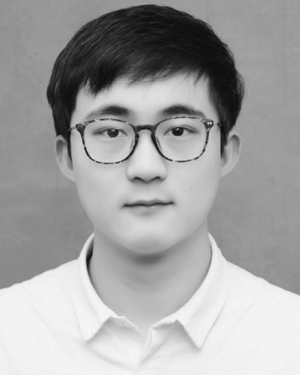
State Key Laboratory of Industrial Control Technology and the Institute of Cyber-Systems and Control, Zhejiang University, Hangzhou, China
Lingzhi Zhang received the B.S. degree in measurement and control technology and instrument from Shandong University, Jinan, China, in 2017, and the M.S. degree in control science and engineering from the China University of Mining and Technology, Xuzhou, China, in 2020. He is currently pursuing the Ph.D. degree in control science and engineering with the Institute of Cyber-Systems and Control, Zhejiang University, Hangzh...Show More
Lingzhi Zhang received the B.S. degree in measurement and control technology and instrument from Shandong University, Jinan, China, in 2017, and the M.S. degree in control science and engineering from the China University of Mining and Technology, Xuzhou, China, in 2020. He is currently pursuing the Ph.D. degree in control science and engineering with the Institute of Cyber-Systems and Control, Zhejiang University, Hangzh...View more
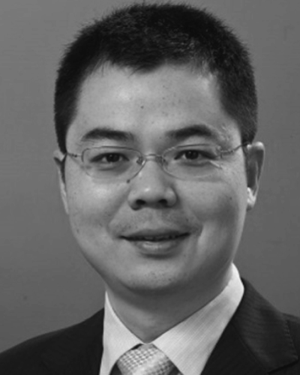
State Key Laboratory of Industrial Control Technology and the Institute of Cyber-Systems and Control, Zhejiang University, Hangzhou, China
Lei Xie received the B.S. and Ph.D. degrees from Zhejiang University, Hangzhou, China, in 2000 and 2005, respectively.
From 2005 to 2006, he was a Post-Doctoral Researcher with the Berlin University of Technology, Berlin, Germany, an Assistant Professor, from 2005 to 2008, and is currently a Professor with the Department of Control Science and Engineering, Zhejiang University. His research activities culminated in over 30 ...Show More
Lei Xie received the B.S. and Ph.D. degrees from Zhejiang University, Hangzhou, China, in 2000 and 2005, respectively.
From 2005 to 2006, he was a Post-Doctoral Researcher with the Berlin University of Technology, Berlin, Germany, an Assistant Professor, from 2005 to 2008, and is currently a Professor with the Department of Control Science and Engineering, Zhejiang University. His research activities culminated in over 30 ...View more
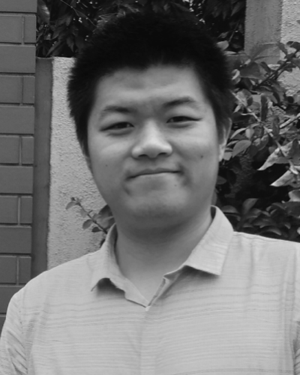
Department of Biomedical Engineering, City University of Hong Kong, Hong Kong, China
Yi Jiang (Member, IEEE) was born in Ezhou, Hubei, China. He received the B.Eng. degree in automation and the M.S. and Ph.D. degrees in control theory and control engineering from the Information Science and Engineering College and the State Key Laboratory of Synthetical Automation for Process Industries, Northeastern University, Shenyang, Liaoning, China, in 2014, 2016, and 2020, respectively.
From January to July 2017, he...Show More
Yi Jiang (Member, IEEE) was born in Ezhou, Hubei, China. He received the B.Eng. degree in automation and the M.S. and Ph.D. degrees in control theory and control engineering from the Information Science and Engineering College and the State Key Laboratory of Synthetical Automation for Process Industries, Northeastern University, Shenyang, Liaoning, China, in 2014, 2016, and 2020, respectively.
From January to July 2017, he...View more
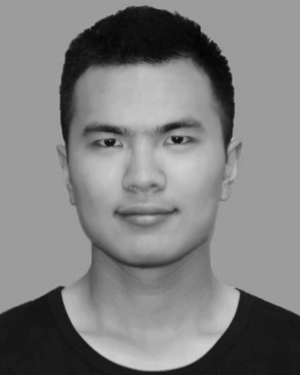
State Key Laboratory of Industrial Control Technology and the Institute of Cyber-Systems and Control, Zhejiang University, Hangzhou, China
Zhishan Li received the B.S. degree from the Huazhong University of Science and Technology, Wuhan, China, in 2018. He is currently pursuing the Ph.D. degree with the Institute of Cyber Systems and Control, Department of Control Science and Engineering, Zhejiang University, Hangzhou, China.
His latest research interests include model compression and neural networks.
Zhishan Li received the B.S. degree from the Huazhong University of Science and Technology, Wuhan, China, in 2018. He is currently pursuing the Ph.D. degree with the Institute of Cyber Systems and Control, Department of Control Science and Engineering, Zhejiang University, Hangzhou, China.
His latest research interests include model compression and neural networks.View more

School of Electronics, Electrical Engineering and Computer Science, Queen’s University Belfast, Belfast, U.K.
Xueqin (Amy) Liu (Senior Member, IEEE) received the Ph.D. degree in electrical and electronic engineering from Queen’s University Belfast (QUB), Belfast, U.K., in 2009.
She is currently a Senior Lecturer of smart grid data analytics with the School of Electronics, Electrical Engineering, and Computer Science, QUB. Her research interests include development of advanced data analysis tools for smart-grid wide-area monitoring...Show More
Xueqin (Amy) Liu (Senior Member, IEEE) received the Ph.D. degree in electrical and electronic engineering from Queen’s University Belfast (QUB), Belfast, U.K., in 2009.
She is currently a Senior Lecturer of smart grid data analytics with the School of Electronics, Electrical Engineering, and Computer Science, QUB. Her research interests include development of advanced data analysis tools for smart-grid wide-area monitoring...View more
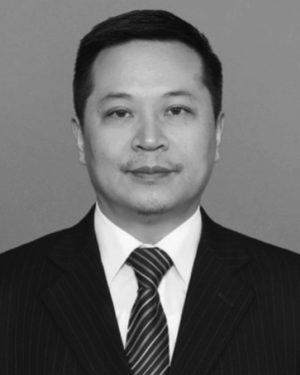
State Key Laboratory of Industrial Control Technology and the Institute of Cyber-Systems and Control, Zhejiang University, Hangzhou, China
Hongye Su (Senior Member, IEEE) was born in 1969. He received the B.S. degree in industrial automation from the Nanjing University of Chemical Technology, Jiangsu, China, in 1990, and the M.S. and Ph.D. degrees from Zhejiang University, Hangzhou, China, in 1993 and 1995, respectively.
From 1995 to 1997, he was a Lecturer with the Department of Chemical Engineering, Zhejiang University. From 1998 to 2000, he was an Associat...Show More
Hongye Su (Senior Member, IEEE) was born in 1969. He received the B.S. degree in industrial automation from the Nanjing University of Chemical Technology, Jiangsu, China, in 1990, and the M.S. and Ph.D. degrees from Zhejiang University, Hangzhou, China, in 1993 and 1995, respectively.
From 1995 to 1997, he was a Lecturer with the Department of Chemical Engineering, Zhejiang University. From 1998 to 2000, he was an Associat...View more

State Key Laboratory of Industrial Control Technology and the Institute of Cyber-Systems and Control, Zhejiang University, Hangzhou, China
Lingzhi Zhang received the B.S. degree in measurement and control technology and instrument from Shandong University, Jinan, China, in 2017, and the M.S. degree in control science and engineering from the China University of Mining and Technology, Xuzhou, China, in 2020. He is currently pursuing the Ph.D. degree in control science and engineering with the Institute of Cyber-Systems and Control, Zhejiang University, Hangzhou, China.
His current research interests include model predictive control, optimization and control of the complex system, and reinforcement learning.
Lingzhi Zhang received the B.S. degree in measurement and control technology and instrument from Shandong University, Jinan, China, in 2017, and the M.S. degree in control science and engineering from the China University of Mining and Technology, Xuzhou, China, in 2020. He is currently pursuing the Ph.D. degree in control science and engineering with the Institute of Cyber-Systems and Control, Zhejiang University, Hangzhou, China.
His current research interests include model predictive control, optimization and control of the complex system, and reinforcement learning.View more

State Key Laboratory of Industrial Control Technology and the Institute of Cyber-Systems and Control, Zhejiang University, Hangzhou, China
Lei Xie received the B.S. and Ph.D. degrees from Zhejiang University, Hangzhou, China, in 2000 and 2005, respectively.
From 2005 to 2006, he was a Post-Doctoral Researcher with the Berlin University of Technology, Berlin, Germany, an Assistant Professor, from 2005 to 2008, and is currently a Professor with the Department of Control Science and Engineering, Zhejiang University. His research activities culminated in over 30 articles that are published in internationally renowned journals and conferences, three book chapters, and a book in the area of applied multivariate statistics and modeling. His research interests focus on the interdisciplinary area of statistics and system control theory.
Lei Xie received the B.S. and Ph.D. degrees from Zhejiang University, Hangzhou, China, in 2000 and 2005, respectively.
From 2005 to 2006, he was a Post-Doctoral Researcher with the Berlin University of Technology, Berlin, Germany, an Assistant Professor, from 2005 to 2008, and is currently a Professor with the Department of Control Science and Engineering, Zhejiang University. His research activities culminated in over 30 articles that are published in internationally renowned journals and conferences, three book chapters, and a book in the area of applied multivariate statistics and modeling. His research interests focus on the interdisciplinary area of statistics and system control theory.View more

Department of Biomedical Engineering, City University of Hong Kong, Hong Kong, China
Yi Jiang (Member, IEEE) was born in Ezhou, Hubei, China. He received the B.Eng. degree in automation and the M.S. and Ph.D. degrees in control theory and control engineering from the Information Science and Engineering College and the State Key Laboratory of Synthetical Automation for Process Industries, Northeastern University, Shenyang, Liaoning, China, in 2014, 2016, and 2020, respectively.
From January to July 2017, he was a Visiting Scholar with the University of Texas at Arlington, TX, USA, and from March 2018 to March 2019, he was a Research Assistant with the University of Alberta, Edmonton, AB, Canada. Currently, he is a Post-Doctoral Researcher with the City University of Hong Kong, Hong Kong. His research interests include networked control systems, industrial process operational control, reinforcement learning, and event-triggered control.
Dr. Jiang was a recipient of the Excellent Doctoral Dissertation Award from Chinese Association of Automation (CAA) in 2021 and the Hong Kong Research Grants Council (RGC) Postdoctoral Fellowship Scheme (PDFS) from 2023 to 2024. He is an Associate Editor of Advanced Control for Applications: Engineering and Industrial Systems.
Yi Jiang (Member, IEEE) was born in Ezhou, Hubei, China. He received the B.Eng. degree in automation and the M.S. and Ph.D. degrees in control theory and control engineering from the Information Science and Engineering College and the State Key Laboratory of Synthetical Automation for Process Industries, Northeastern University, Shenyang, Liaoning, China, in 2014, 2016, and 2020, respectively.
From January to July 2017, he was a Visiting Scholar with the University of Texas at Arlington, TX, USA, and from March 2018 to March 2019, he was a Research Assistant with the University of Alberta, Edmonton, AB, Canada. Currently, he is a Post-Doctoral Researcher with the City University of Hong Kong, Hong Kong. His research interests include networked control systems, industrial process operational control, reinforcement learning, and event-triggered control.
Dr. Jiang was a recipient of the Excellent Doctoral Dissertation Award from Chinese Association of Automation (CAA) in 2021 and the Hong Kong Research Grants Council (RGC) Postdoctoral Fellowship Scheme (PDFS) from 2023 to 2024. He is an Associate Editor of Advanced Control for Applications: Engineering and Industrial Systems.View more

State Key Laboratory of Industrial Control Technology and the Institute of Cyber-Systems and Control, Zhejiang University, Hangzhou, China
Zhishan Li received the B.S. degree from the Huazhong University of Science and Technology, Wuhan, China, in 2018. He is currently pursuing the Ph.D. degree with the Institute of Cyber Systems and Control, Department of Control Science and Engineering, Zhejiang University, Hangzhou, China.
His latest research interests include model compression and neural networks.
Zhishan Li received the B.S. degree from the Huazhong University of Science and Technology, Wuhan, China, in 2018. He is currently pursuing the Ph.D. degree with the Institute of Cyber Systems and Control, Department of Control Science and Engineering, Zhejiang University, Hangzhou, China.
His latest research interests include model compression and neural networks.View more

School of Electronics, Electrical Engineering and Computer Science, Queen’s University Belfast, Belfast, U.K.
Xueqin (Amy) Liu (Senior Member, IEEE) received the Ph.D. degree in electrical and electronic engineering from Queen’s University Belfast (QUB), Belfast, U.K., in 2009.
She is currently a Senior Lecturer of smart grid data analytics with the School of Electronics, Electrical Engineering, and Computer Science, QUB. Her research interests include development of advanced data analysis tools for smart-grid wide-area monitoring and protective control, energy forecasting, and energy storage optimization to facilitate renewable energy integration.
Xueqin (Amy) Liu (Senior Member, IEEE) received the Ph.D. degree in electrical and electronic engineering from Queen’s University Belfast (QUB), Belfast, U.K., in 2009.
She is currently a Senior Lecturer of smart grid data analytics with the School of Electronics, Electrical Engineering, and Computer Science, QUB. Her research interests include development of advanced data analysis tools for smart-grid wide-area monitoring and protective control, energy forecasting, and energy storage optimization to facilitate renewable energy integration.View more

State Key Laboratory of Industrial Control Technology and the Institute of Cyber-Systems and Control, Zhejiang University, Hangzhou, China
Hongye Su (Senior Member, IEEE) was born in 1969. He received the B.S. degree in industrial automation from the Nanjing University of Chemical Technology, Jiangsu, China, in 1990, and the M.S. and Ph.D. degrees from Zhejiang University, Hangzhou, China, in 1993 and 1995, respectively.
From 1995 to 1997, he was a Lecturer with the Department of Chemical Engineering, Zhejiang University. From 1998 to 2000, he was an Associate Professor with the Institute of Advanced Process Control, Zhejiang University, where he is currently a Professor with the Institute of Cyber-Systems and Control. His current research interests include robust control, time-delay systems, and advanced process control theory and applications.
Hongye Su (Senior Member, IEEE) was born in 1969. He received the B.S. degree in industrial automation from the Nanjing University of Chemical Technology, Jiangsu, China, in 1990, and the M.S. and Ph.D. degrees from Zhejiang University, Hangzhou, China, in 1993 and 1995, respectively.
From 1995 to 1997, he was a Lecturer with the Department of Chemical Engineering, Zhejiang University. From 1998 to 2000, he was an Associate Professor with the Institute of Advanced Process Control, Zhejiang University, where he is currently a Professor with the Institute of Cyber-Systems and Control. His current research interests include robust control, time-delay systems, and advanced process control theory and applications.View more


